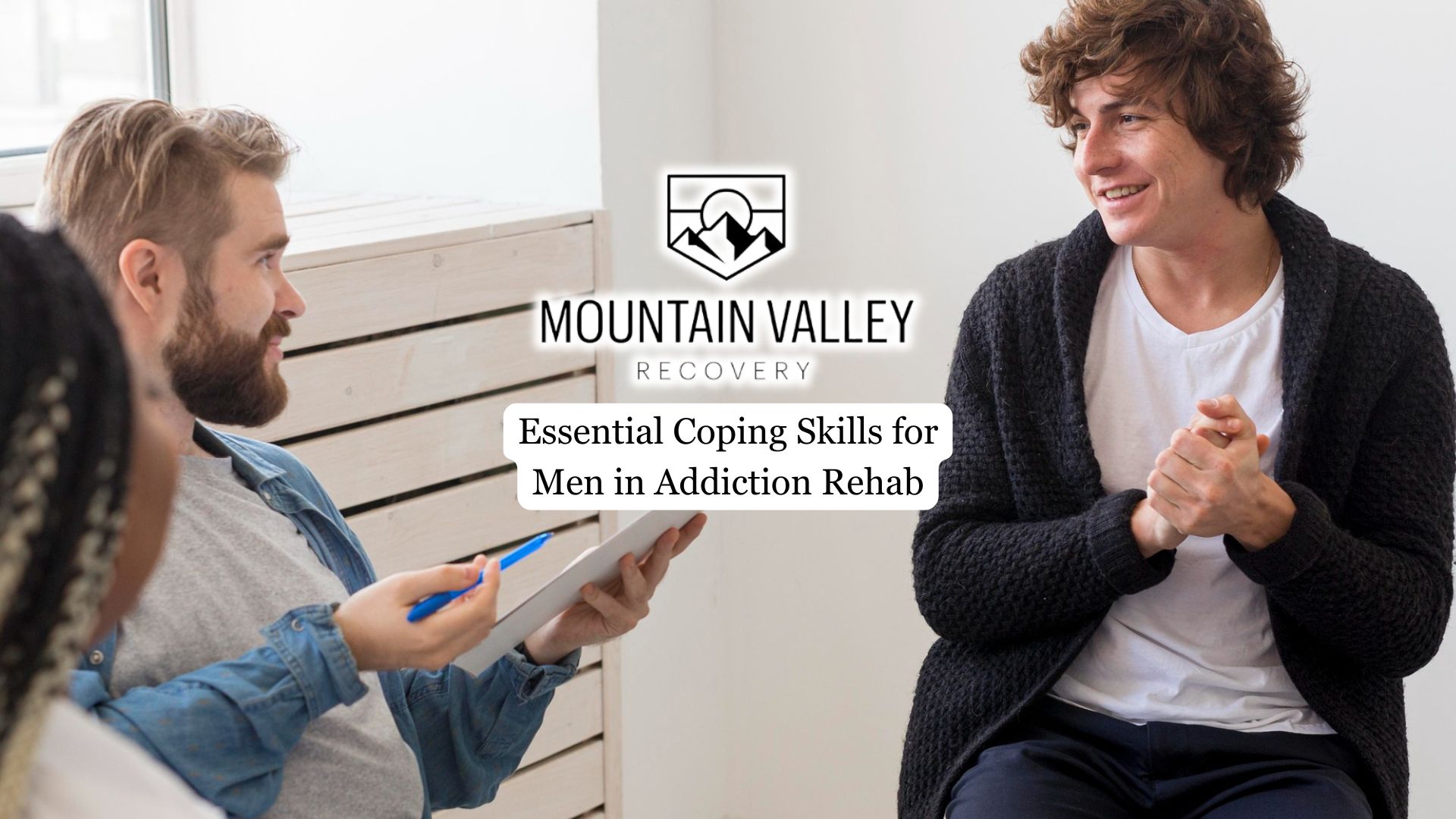Addiction affects people from all walks of life, but men’s experiences and approaches to recovery can be shaped by societal expectations, cultural influences, and personal histories. Society has long encouraged men to embody strength, independence, and emotional restraint – qualities that can sometimes pose challenges in the recovery journey if left unaddressed.
This article aims to showcase vital coping strategies that can enable men in addiction rehab to not only conquer their substance use disorders but also to flourish in their newly found sobriety.
Healthy Relationships
Surrounding yourself with supportive individuals who understand your journey and provide encouragement can significantly boost your resilience against relapse.
Engage in group therapy or support meetings to connect with others who share similar experiences, fostering a sense of community and reducing feelings of isolation.
Developing effective communication skills is key to building and maintaining these healthy relationships. Practice active listening and empathy in conversations to create an atmosphere of openness and trust.
As you navigate social situations, setting boundaries with individuals who may trigger substance use is essential for protecting your sobriety.
Knowing when to seek help for addiction issues is also a crucial component of the recovery toolkit. If you’re a man struggling with substance abuse, you can receive professional support from this men’s rehab in Utah – https://mountainvalleyrecovery.com/inpatient-rehab/
Emotional Regulation Skills
Developing effective coping mechanisms is essential for managing the complex emotions that may arise during rehab. Techniques like deep breathing, mindfulness meditation, and progressive muscle relaxation can help you reduce emotional distress and improve self-control.
Journaling is another valuable tool for processing your feelings, allowing you to articulate and reflect on your thoughts constructively. Engaging in physical activities, such as exercise or sports, can release pent-up emotions and promote overall emotional well-being by increasing endorphin levels.
Healthy communication skills will also enable you to express your needs and feelings without resorting to substance use as a coping mechanism.
Cognitive Restructuring
Cognitive restructuring, a key component of cognitive-behavioral therapy, helps you identify and challenge the negative beliefs that fuel substance use. By learning to recognize these distorted thoughts, you can replace them with healthier, more rational perspectives. This process enhances your coping skills and emotional regulation, reducing the risk of relapse.
Practicing cognitive restructuring empowers you to reframe your reactions to stress and adversity, fostering resilience in the face of triggers. As you develop a more balanced outlook, you’ll find it easier to manage cravings and maintain sobriety.
Stress Management
Mindfulness practices, such as deep breathing, meditation, and yoga, can significantly reduce anxiety and help you cope with triggers. Engaging in regular physical activity is another powerful stress management tool, as it releases endorphins that promote a sense of well-being and help mitigate cravings.
Journaling can also be an effective way to articulate your thoughts and feelings, leading to greater emotional clarity and a reduction in overwhelming stress. On top of that, establishing a structured daily routine can provide stability and predictability, helping you feel more in control of your recovery journey.

Communication Skills
Effective communication skills enable you to express your feelings, needs, and experiences openly, fostering trust and connection with peers and therapists.
Active listening is a crucial component of healthy communication that can enhance understanding and empathy among individuals in recovery. By fully concentrating on the speaker and responding thoughtfully, you create a supportive environment that encourages emotional expression.
Using “I” statements, such as “I feel” or “I need,” helps you articulate your emotions without placing blame or triggering defensiveness in others, promoting healthier interactions.
Developing assertiveness in communication allows you to set boundaries and express your needs clearly, reducing the likelihood of relapse triggers caused by unhealthy relationships or situations.
Regular participation in support groups encourages the practice of communication skills, providing a safe space where you can learn from one another and strengthen your emotional expression.
Problem-Solving Skills
Engaging in structured problem-solving techniques, such as breaking down issues into manageable parts, can boost your confidence in handling stressors and reduce feelings of overwhelm.
As a plus, practicing problem-solving can help you identify the root causes of your substance use, providing insights that lead to healthier coping strategies. Regularly utilizing these skills in real-life scenarios promotes resilience, empowering you to face triggers and setbacks constructively throughout your recovery journey.
Relapse Prevention Strategies
Start by identifying your triggers and developing effective coping strategies to manage them.
Regularly attending support group meetings can provide you with a sense of community and accountability, which are vital for sustained recovery. Engage in ongoing therapy sessions to continuously assess your emotional and mental health, addressing any issues that may lead to relapse.
Practicing cognitive restructuring techniques will help you challenge negative thought patterns associated with cravings and relapse, promoting healthier responses to stress.
Implement self-care routines, such as exercise and mindfulness practices, to significantly improve your emotional resilience and overall well-being, reducing the likelihood of returning to substance use.
Final Thoughts from Mountain Valley Recovery
The extended rehabilitation program for men in Utah we provide at Mountain Valley Recovery is meticulously crafted to offer the time, support, and resources essential for men to cultivate and fortify these vital coping skills.
Immersed in our tranquil mountain environment, you’ll have the chance to concentrate on your recovery journey without the disruptions of daily life. Our seasoned team is dedicated to navigating you through the process of honing these coping strategies, personalizing our approach to cater to your unique needs and experiences.





